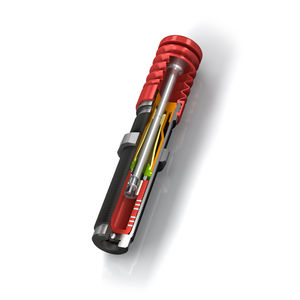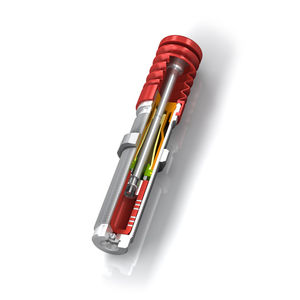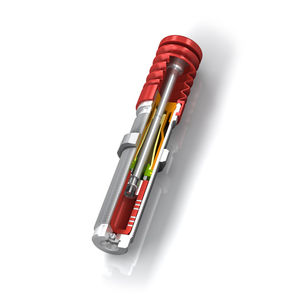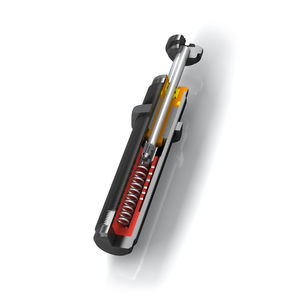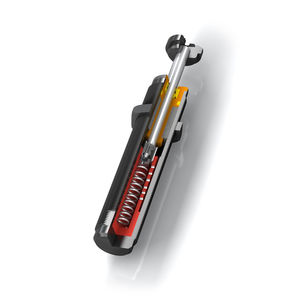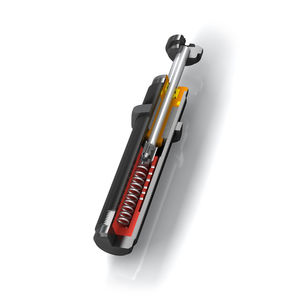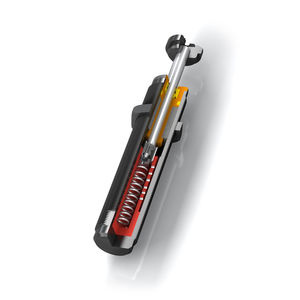
- Materials - Tools - Components
- Standard Mechanical Component
- Shock damper
- ACE Stoßdämpfer GmbH
- Company
- Products
- Catalogs
- News & Trends
- Exhibitions
Shock absorber PMCN600EUM-V4Apneumaticfor machinesstainless steel



Add to favorites
Compare this product
Characteristics
- Function
- shock
- Technology
- pneumatic
- Applications
- for machines
- Material
- stainless steel
- Other characteristics
- self-compensating, compact, miniature, corrosion-resistant
- Load capacity
136 N
- Stroke
25 mm
(0.98 in)
Description
Optimum corrosion protection
Self-Compensating, Rolling Diaphragm Technology, TPU Bellow
Hermetically sealed and rustproof: The Protection product family PMCN is also available in a stainless steel design. This is or particular interest to the food and packaging industries.
Their main special feature is the compact, totally sealed bellow between the body and the cap made of TPU (thermoplastic polyurethane). This protection safely encapsulates the ACE rolling diaphragm from the outside environment. Aggressive fluids don't stand a chance.
The PMCN ramge is an excellent alternative if the accessory option of the SP type air bleed collar cannot be used due to a lack of compressed air.
The PMCN range miniature shock absorbers, produced from stainless steel, are primarily suitable for use in the food industry, but are also wherever an elegant look is important e.g. in shipbuilding.
Technical data
Impact velocity range 0.06 m/s to 6 m/s. Other speeds on request.
Operating temperature range 0 °C to 66 °C
Mounting in any position
Positive stop Integrated
Material Outer body: stainless steel (1.4404, AISI 316L); Main bearing: plastic; Piston rod: hardened stainless steel (1.4125, AISI 440C); Bellow: TPU, steel insert: stainless steel (1.4404/1.4571, AISI 316L/316Ti); Rolling diaphragm: EPDM
Damping medium oil, temperature stable
Catalogs
No catalogs are available for this product.
See all of ACE Stoßdämpfer GmbH‘s catalogsRelated Searches
- Machine foot
- ACE anti-vibration mount
- ACE shock damper
- ACE hydraulic damper
- ACE mechanical damper
- ACE metal anti-vibration mount
- Metal foot
- Leveling foot
- ACE metal damper
- ACE industrial damper
- ACE rubber anti-vibration mount
- Elastomer foot
- ACE machine damper
- ACE plastic damper
- ACE vibration damper
- ACE gas spring
- ACE cylindrical anti-vibration mount
- ACE piston damper
- ACE adjustable damper
- ACE steel damper
*Prices are pre-tax. They exclude delivery charges and customs duties and do not include additional charges for installation or activation options. Prices are indicative only and may vary by country, with changes to the cost of raw materials and exchange rates.
















